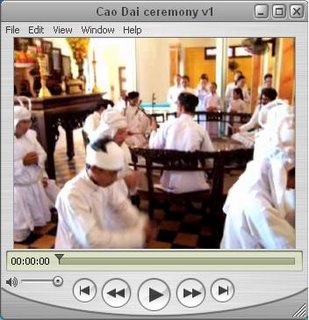Here are some thoughts on a Vietnam Airlines flight from Hue to Saigon...
The cha sandwich is barely better than eating bread alone...no wait, it’s not. The Uni chocolate bar (from Thailand)
In America you get the airline magazine and a catalogue of overpriced, quirky items to buy
tastes like chocolate covered cardboard, and is worse than the cha sandwich. But the water was good. Fashion magazines. Why are Viets so obsessed with fashion? Actually, that would be an interesting comment thread, so respond if you want, but the question is largely rhetorical. I find it extremely poignant that on Vietnam airlines' flights you get two magazines to read from the back of the seat in front of you – Heritage Fashion and Heritage (the airline magazine). In America you get the airline magazine and a catalogue of overpriced, quirky items to buy. Indicative of our cultures? I think so.
This month's models are ugly
Who is Elka Ray and how do I get her job as an English Consultant for Heritage Fashion magazine? In the first article alone I saw two glaring misprints – the English short version of a story about ancient art in Vietnam said that art appeared 4,000 to 5,000 years ago, and a fish tablet was 18cm x 18cm x 1.2cm. The Viet long story said 40,000 to 50,000 years ago and 18cm x 8cm x 1.2cm. Sorry, but when talking about ancient stone art, those are BIG errors.This months models are ugly.
My favorite section is the “Fashion & Health Briefs.” Read this:
“Big baby, fat adult?
Large infants or those who grow rapidly in the first two years of life are at increased risk of obesity as children and adults, say British researchers. An analysis of 24 studies on 400,000 infants found that one in five UK children is overweight or obese. The heaviest infants (those with the highest body mass index) and those who gained weight rapidly during the first and second year of life were more likely to be obese at all stages of life – childhood, adolescence, and early adulthood – than other infants. The doctors noted that breastfeeding helps to protect babies from excess weight gain.” (p. 48)
1. BMI is not accurate, so stop using it.
2. Yea, Americans aren’t the only fatties on the planet (also see children in HCMC)
3. Why are “all stages of life” only three?? Since when did we all die in early adulthood? Isn’t that the definition of early adulthood – that there is life after it (i.e. adulthood)?
4. One more reason why breastfeeding for the first 6 mo to one year is imperative unless you are not healthy enough to do it. Time isn’t an excuse. Love your children and do what’s right – breastfeed.
And the other good article:
“Migraine relief
German researchers report that acupuncture works as well as standard drugs for migraines. Surprisingly, drug treatments and both real and fake acupuncture were all found to be equally effective. All of the more than 900 patients who had been randomly selected to receive Chinese acupuncture, sham acupuncture, or drugs reported similar. In the so-called sham procedure the needles were put in places that were not traditional acupuncture points. (p. 49)
1. Hey Ms. Ray, similar ... what?? The end of the sentence should say "similar benefits." How do I know this? Because ...
2. ...you wrote half of the short brief one page earlier. For someone whose title is "English Consultant" in English and "Assistant Editor of English" in Vietnamese, you seem to be woefully inept.
3. What kind of crap reporting is this? The tag line is "acupunture works as well as standard drugs." Shouldn't we all be looking closely at how real and sham acupuncture both received the same results?? More proof that acupuncture is mental. Gotta love that placebo effect.
4. Western drugs with documented physical effects also worked as well as the sham stuff. Maybe most of western medicine's efficacy for migraines is also due to the placebo effect?
There needs to be a warning light before the person in front of you leans back in his/her seat. My laptop almost got crushed as the man in front of me just leaned back. My very loud shout didn't even elicit a look back or "I'm sorry" from the man.
[+/-] read/hide the rest of this post




























